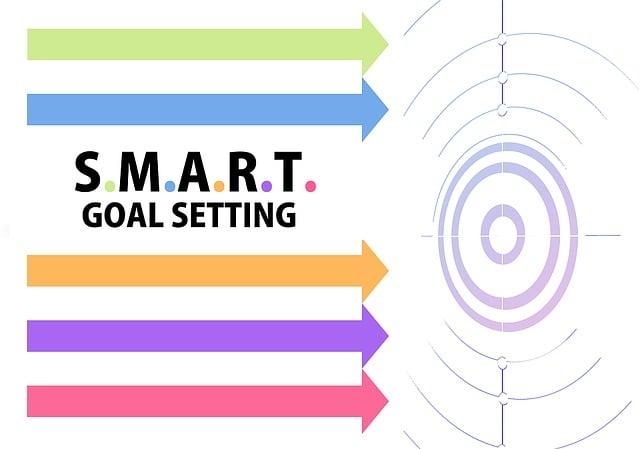Have you ever wondered if you can use your EBT (Electronic Benefit Transfer) card to purchase creatine? If so, you’re not alone. Many people have questions about what items are eligible for purchase with this government-provided assistance program. In this article, we will delve into the eligibility criteria for using EBT to buy creatine and provide you with a clear understanding of how it works. So, let’s get right into it and explore this topic together!
1. What is EBT and how does it work?
EBT, which stands for Electronic Benefit Transfer, is a system used in the United States to distribute government benefits to eligible individuals and families in need. Unlike traditional paper food stamps or checks, EBT utilizes a plastic card, similar to a debit or credit card, to make purchases. This system works by electronically transferring funds from the recipient’s account to the retailer’s account, allowing for seamless and convenient transactions.
When a person is qualified for benefits such as SNAP (Supplemental Nutrition Assistance Program) or TANF (Temporary Assistance for Needy Families), they are provided with an EBT card that is loaded with their allocated funds each month. This card can be used at authorized retailers, including grocery stores, supermarkets, and farmers’ markets. To make a purchase, the cardholder simply swipes their EBT card at the checkout counter and enters their personal identification number (PIN). The transaction is then processed, deducting the cost of the eligible items from the card balance.
One of the advantages of using EBT is its simplicity and convenience. The process of purchasing becomes more streamlined, removing the need for physical vouchers or checks that can be lost or misplaced. Additionally, EBT offers a discreet way for individuals and families to access their benefits, as there is no visual distinction between EBT cards and regular debit or credit cards. This helps reduce stigma for those receiving assistance. Lastly, EBT helps ensure the funds are used for their intended purpose, as the system restricts the purchase of non-eligible items such as alcohol, tobacco, or hot prepared foods. EBT empowers individuals and families by providing them with a secure and efficient method of accessing essential resources for their well-being.

2. Dispelling myths: Can I use EBT benefits to buy supplements?
There are many misconceptions when it comes to using EBT benefits to purchase supplements. Let’s get the facts straight and dispel these myths:
Myth 1: EBT benefits cannot be used to buy supplements.
This is not entirely true. While EBT benefits, such as SNAP (Supplemental Nutrition Assistance Program), are primarily intended for purchasing food items, there are certain circumstances where supplements may be eligible for purchase. These circumstances usually involve supplements that have a specific purpose, such as providing medical nutrition therapy, and are recommended by a healthcare professional.
- Examples of eligible supplements:
- Prescribed vitamins or minerals for a medical condition
- Supplements for special dietary needs, like those required by individuals with specific illnesses or allergies
- Formula for infants with special dietary needs
- Examples of ineligible supplements:
- Weight loss or bodybuilding supplements
- General multivitamins or dietary supplements without a medical purpose
- Beauty or herbal supplements
It’s important to note that the eligibility criteria for supplements may vary depending on your state’s guidelines, so it’s always wise to consult your local SNAP or EBT office for accurate information about what is covered and what is not. Remember, staying informed is key to making the most of your benefits and ensuring you make wise and healthy choices for you and your family.

3. Understanding the eligibility guidelines for EBT purchases
Educating oneself about the eligibility guidelines for EBT purchases is crucial for making informed decisions. Here, we break down the essential aspects that will help you navigate the process smoothly:
The eligibility criteria for EBT purchases depend on several factors. To determine whether you qualify for EBT benefits, consider the following:
- Income: Your income plays a significant role in determining eligibility. Generally, your income must fall below a certain threshold to qualify. This threshold varies depending on the size of your household.
- Assets: The value of your assets, such as savings accounts, stocks, and property, may also impact your eligibility. However, certain assets, like your primary residence and personal belongings, are typically not considered when determining eligibility.
- Household size: The number of people living in your household affects eligibility. Generally, a larger household may have a higher income threshold than a smaller one.
- Citizenship status: In most cases, you must be a U.S. citizen or a qualified non-citizen to be eligible for EBT benefits.
By understanding these essential guidelines, you can make informed decisions regarding your eligibility for EBT purchases. Remember, eligibility rules may vary depending on your state, so it’s important to familiarize yourself with your specific state’s requirements.

4. The specific items covered under EBT: What can you buy?
EBT, or Electronic Benefit Transfer, is a program that provides eligible low-income individuals and families with funds to purchase essential items. With EBT, there are certain restrictions on what you can buy. The program aims to ensure that the funds are used for necessary items, promoting the health and well-being of recipients. So, what specific items are covered under EBT? Let’s take a closer look!
1. **Food and beverages**: EBT can be used to buy a wide range of food items such as fruits, vegetables, meat, dairy products, bread, cereals, and snacks. It’s important to note that certain non-food items like pet food, vitamins, and supplements are not eligible for purchase with EBT.
2. **Seeds and plants**: EBT allows you to use your benefits to buy seeds and plants that produce food for your household. This is a fantastic opportunity to start your own vegetable garden and nurture a sustainable source of fresh produce.
3. **Food preparation items**: EBT funds can be used to purchase kitchen equipment and utensils that are necessary for the preparation and storage of food. This includes items like pots, pans, knives, can openers, and even containers for leftovers.
4. **Non-alcoholic beverages**: You can also utilize your EBT benefits to buy non-alcoholic beverages like milk, juice, coffee, tea, and other essentials to keep you hydrated and refreshed.
Remember, it is crucial to keep in mind the specific guidelines and restrictions of the EBT program to ensure that you are using your benefits appropriately. By understanding what items can be purchased with EBT, individuals and families can make the most of the program and provide for their essential needs.
5. Unpacking the rules: Why creatine is not eligible for purchase with EBT
When it comes to eligible items for purchase with EBT (Electronic Benefit Transfer) cards, there are specific rules in place to ensure that the program benefits are used for essential goods. One item that is not eligible for purchase with EBT is creatine. Creatine is a popular supplement used mainly by athletes and bodybuilders for enhancing performance and building muscles. Here are some reasons why it is not considered an essential item under the EBT program:
- Not a basic necessity: The EBT program is designed to assist low-income individuals and families with purchasing essential food items. While nutrition is important, creatine falls outside of the category of basic necessities. It is considered a non-essential supplement that is not required for a healthy diet.
- Targeted audience: EBT primarily caters to individuals who may have difficulty affording food. Creatine, on the other hand, is typically used by athletes and individuals aiming for specific fitness goals. As such, it does not align with the target audience of the EBT program.
- Not regulated as a food: Unlike certain vitamins and minerals, creatine is not classified or regulated as a food by the Food and Drug Administration (FDA). It is categorized as a dietary supplement, and the EBT program is intended for purchasing food items and not dietary supplements.
It’s important to remember that the EBT program aims to provide assistance in obtaining essential food items for those in need. While creatine may have its benefits for some individuals, it falls outside the scope of items covered by the program. This is why it is not eligible for purchase with EBT funds.
6. Exploring dietary supplement alternatives within EBT guidelines
Eating a balanced diet is essential for our overall health and it often provides us with all the necessary nutrients. However, sometimes our bodies might need a little extra support, which is where dietary supplements can come in handy. When searching for a dietary supplement, it’s important to consider ones that are in line with the guidelines set by the Electronic Benefit Transfer (EBT) program. Here are some alternative options that meet EBT guidelines that you might want to explore:
1. Vitamins and Minerals: Look for supplements that provide essential vitamins and minerals like vitamin C, vitamin D, iron, and calcium. These nutrients are important for maintaining a healthy immune system, bone strength, and overall wellbeing.
2. Herbal Supplements: Many herbal supplements can also be an excellent addition to your diet while staying within EBT guidelines. Some popular options include turmeric, ginger, and echinacea. These supplements can have various benefits such as antioxidant properties, aiding digestion, and supporting the immune system.
Remember, it’s essential to consult with a healthcare professional before adding any dietary supplement to your routine, especially if you have any existing health conditions or are taking prescription medications. They can provide personalized advice and ensure that the supplements you choose are safe and effective for you.
7. Prioritizing health and wellness on a limited budget
One of the common misconceptions about prioritizing health and wellness is that it requires a hefty budget. However, taking care of your well-being doesn’t have to break the bank. With a little creativity and planning, you can make significant improvements to your physical and mental health without spending a fortune.
Here are some practical tips to help you prioritize health and wellness on a limited budget:
- Home workouts: Instead of expensive gym memberships, consider working out at home. There are plenty of free exercise resources available online, such as workout videos and apps. You can also do bodyweight exercises like push-ups, squats, and planks that require no equipment.
- Meal planning: Preparing meals at home is not only healthier but also more cost-effective. Plan your meals for the week in advance and create a shopping list based on that. This way, you avoid impulsive food purchases and reduce food waste. Look for budget-friendly recipes and consider batch cooking to save time and money.
- Get outdoors: Nature offers numerous benefits to our well-being, and it’s free! Take advantage of local parks, walking trails, or even your own backyard for activities like walking, jogging, or practicing yoga. Not only will you boost your physical health, but spending time in nature can also improve mental clarity and reduce stress.
- Mindfulness and meditation: These practices can significantly contribute to overall wellness and require no financial investment. Learn simple breathing techniques or try guided meditation videos available online. Incorporate mindfulness into daily activities like eating, walking, or even washing dishes. Cultivating a sense of presence and gratitude can promote a positive mindset.
8. Navigating the resources available to maintain a balanced lifestyle
In today’s fast-paced world, maintaining a balanced lifestyle can sometimes feel like a challenge. However, there are various resources available that can help you navigate this journey and achieve the equilibrium you desire.
First and foremost, it’s crucial to prioritize your physical well-being. Pay attention to the signals your body sends and develop healthy habits like exercise, proper nutrition, and sufficient sleep. There are countless fitness apps, online communities, and forums where you can find inspiration, exercise routines, and healthy recipes tailored to your preferences. **Finding a workout buddy** to keep you accountable can also be an effective way to stay motivated.
Frequently Asked Questions
Q: What is EBT and what can it be used for?
A: EBT stands for Electronic Benefit Transfer. It is a government program that provides eligible individuals and families with funds to purchase essential food items. These funds are loaded onto a plastic card, similar to a debit or credit card, and can be used to buy groceries at approved retailers.
Q: Can I buy creatine with EBT?
A: No, unfortunately, creatine is not eligible for purchase using EBT funds. The program is designed to assist individuals and families in buying foods that are necessary for a well-balanced and nutritious diet. Creatine, a popular supplement used by athletes and bodybuilders to enhance performance, falls outside the scope of eligible items.
Q: Why is creatine not eligible for purchase with EBT?
A: The EBT program follows strict guidelines set by the government. These guidelines dictate what items can and cannot be purchased using EBT funds. Creatine, being a dietary supplement rather than a necessity for maintaining a healthy diet, does not meet the criteria for eligibility.
Q: What other items are not eligible for EBT purchase?
A: In addition to creatine, EBT funds cannot be used to buy non-food items such as toiletries, household supplies, vitamins, pet food, or hot prepared meals from restaurants. The focus of the program is to meet the nutritional needs of individuals and families, ensuring they have access to essential food items.
Q: What food items are eligible for purchase with EBT?
A: EBT funds can be used to buy a wide range of food items including fruits, vegetables, meat, poultry, fish, bread, dairy products, cereals, grains, seafood, and even seeds and plants that produce food. Basically, any food item that provides nourishment and is not considered a luxury or non-food item can be purchased using EBT funds.
Q: Can I purchase energy drinks or soda with EBT?
A: Yes and no. While it is possible to buy some sugary drinks using EBT funds, there are restrictions. Only drinks that have a “nutrition facts” label and are intended to provide a benefit to the body, such as milk, 100% fruit juices, and certain protein drinks, can be purchased. However, energy drinks, sodas, and other sugary beverages do not meet these requirements and therefore cannot be bought with EBT.
Q: Can I use my EBT card to buy groceries online?
A: Yes, you can! The EBT program now allows eligible participants to purchase groceries online in select states. You can visit approved websites or use designated mobile apps to order your groceries and pay with your EBT card. This option provides more convenience, especially for those who may have mobility issues or limited access to transportation.
Q: How can I find out which items are eligible for purchase with EBT?
A: Each state has its own guidelines and approved list of eligible items. To find out what you can purchase with your EBT card, you can refer to your state’s EBT website or contact your local Department of Social Services. They will provide you with an up-to-date list of approved items, ensuring you make informed choices when shopping with your EBT funds.
To Wrap It Up
In conclusion, understanding the eligibility for purchasing creatine with EBT benefits is crucial. While EBT is designed to assist individuals and families in need with essential food items, it does not cover supplements like creatine, as they are considered non-essential. The eligibility criteria for EBT benefits focus primarily on providing nutritious food options for those facing financial hardships. Therefore, it’s important to be aware of what items can and cannot be purchased with EBT to make the most of this assistance program. Remember, EBT benefits are intended to support your well-being and help you access healthy food choices.







